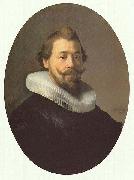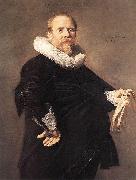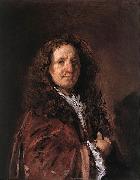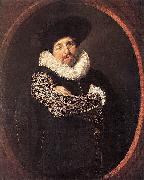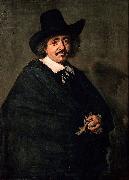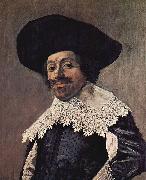Wholesale Oil Painting Reproductions No Minimum and Door to Door! |
|||||||||||
|
|
|||||||||||

|
|||||||||||
|
|
|
||||||||
All Rembrandt van rijn Oil Paintings |
||||||||
|
|
||||||||
|
|
||||||||
|
Artist Introduction: 1606-1669
Dutch painter, draughtsman and etcher. From 1632 onwards he signed his works with only the forename Rembrandt; in documents, however, he continued to sign Rembrandt van Rijn (occasionally van Rhyn), initially with the addition of the patronymic 'Harmensz.'. This was no doubt in imitation of the great Italians such as Leonardo, Michelangelo, Raphael and Titian, on whom he modelled himself, sometimes literally. He certainly equalled them in fame, and not only in his own country. His name still symbolizes a whole period of art history rightfully known as 'Holland's Golden Age'. In 1970-71 a great exhibition in Paris was devoted to it under the eloquent title Le Si?cle de Rembrandt. A century before, a popular work of cultural history by C. Busken Huet referred to the Netherlands as 'the land of Rembrandt'. His fame is partly due to his multi-faceted talent. Frans Hals was perhaps at times a greater virtuoso with the brush but remained 'only' a portrait painter. Vermeer may have excelled Rembrandt in the art of illusion but was less prolific. Rembrandt was not only a gifted painter but also an inspired graphic artist: he has probably never been surpassed as an etcher, and he often seems inimitable as a draughtsman. His subjects reflect his manifold talent and interests. He painted, drew and etched portraits, landscapes, figures and animals, but, above all, scenes of biblical and secular history and mythology. |
||||||||
|
|
||||||||
|
Portrait of a man. Painting ID:: 71829 |
1632(1632)
Oil on oak panel
63.5 x 47.3 cm (25 x 18.62 in)
|
|||||||
Height Width |
INS/CM Quality |
|||||||
|
X |
| |||||||
|
|
||||||||
All Frans Hals Oil Paintings |
||||||||
|
|
||||||||
|
|
||||||||
|
Artist Introduction: 1580-1666
Frans Hals Galleries
In the field of group portraiture his work is equalled only by that of Rembrandt. Hals's portraits, both individual and group, have an immediacy and brilliance that bring his sitters to life in a way previously unknown in the Netherlands. This effect, achieved by strong Baroque designs and the innovative use of loose brushstrokes to depict light on form, was not to the taste of critics in the 18th century and the early 19th, when his work was characterized as lazy and unfinished. However, with the rise of Realism and, later, Impressionism, Hals was hailed as a modern painter before his time. Since then his works have always been popular. |
||||||||
|
|
||||||||
|
|
Portrait of a Man. Painting ID:: 86468 |
Date 1630(1630)
Medium Oil on canvas
Dimensions Height: 116.1 cm (45.7 in). Width: 90.1 cm (35.5 in).
cjr |
||||||
Height Width |
INS/CM Quality |
|||||||
|
X |
| |||||||
|
|
||||||||
All Frans Hals Oil Paintings |
||||||||
|
|
||||||||
|
|
||||||||
|
Artist Introduction: 1580-1666
Frans Hals Galleries
In the field of group portraiture his work is equalled only by that of Rembrandt. Hals's portraits, both individual and group, have an immediacy and brilliance that bring his sitters to life in a way previously unknown in the Netherlands. This effect, achieved by strong Baroque designs and the innovative use of loose brushstrokes to depict light on form, was not to the taste of critics in the 18th century and the early 19th, when his work was characterized as lazy and unfinished. However, with the rise of Realism and, later, Impressionism, Hals was hailed as a modern painter before his time. Since then his works have always been popular. |
||||||||
|
|
||||||||
|
|
Portrait of a Man. Painting ID:: 92476 |
between 1660(1660) and 1666(1666)
Medium oil on canvas
Dimensions Height: 85.8 cm (33.8 in). Width: 66.9 cm (26.3 in).
cjr |
||||||
Height Width |
INS/CM Quality |
|||||||
|
X |
| |||||||
|
|
||||||||
All Frans Hals Oil Paintings |
||||||||
|
|
||||||||
|
|
||||||||
|
Artist Introduction: 1580-1666
Frans Hals Galleries
In the field of group portraiture his work is equalled only by that of Rembrandt. Hals's portraits, both individual and group, have an immediacy and brilliance that bring his sitters to life in a way previously unknown in the Netherlands. This effect, achieved by strong Baroque designs and the innovative use of loose brushstrokes to depict light on form, was not to the taste of critics in the 18th century and the early 19th, when his work was characterized as lazy and unfinished. However, with the rise of Realism and, later, Impressionism, Hals was hailed as a modern painter before his time. Since then his works have always been popular. |
||||||||
|
|
||||||||
|
|
Portrait of a Man. Painting ID:: 92808 |
1622(1622)
Medium oil on canvas mounted on panel
Dimensions 107 X 85 cm (42.1 X 33.5 in)
cjr |
||||||
Height Width |
INS/CM Quality |
|||||||
|
X |
| |||||||
|
|
||||||||
All Frans Hals Oil Paintings |
||||||||
|
|
||||||||
|
|
||||||||
|
Artist Introduction: 1580-1666
Frans Hals Galleries
In the field of group portraiture his work is equalled only by that of Rembrandt. Hals's portraits, both individual and group, have an immediacy and brilliance that bring his sitters to life in a way previously unknown in the Netherlands. This effect, achieved by strong Baroque designs and the innovative use of loose brushstrokes to depict light on form, was not to the taste of critics in the 18th century and the early 19th, when his work was characterized as lazy and unfinished. However, with the rise of Realism and, later, Impressionism, Hals was hailed as a modern painter before his time. Since then his works have always been popular. |
||||||||
|
|
||||||||
|
|
Portrait of a Man. Painting ID:: 92864 |
c. 1650-1652
Medium oil on canvas
Dimensions 108 X 79.5 cm (42.5 X 31.3 in)
cjr |
||||||
Height Width |
INS/CM Quality |
|||||||
|
X |
| |||||||
|
|
||||||||
All Frans Hals Oil Paintings |
||||||||
|
|
||||||||
|
|
||||||||
|
Artist Introduction: 1580-1666
Frans Hals Galleries
In the field of group portraiture his work is equalled only by that of Rembrandt. Hals's portraits, both individual and group, have an immediacy and brilliance that bring his sitters to life in a way previously unknown in the Netherlands. This effect, achieved by strong Baroque designs and the innovative use of loose brushstrokes to depict light on form, was not to the taste of critics in the 18th century and the early 19th, when his work was characterized as lazy and unfinished. However, with the rise of Realism and, later, Impressionism, Hals was hailed as a modern painter before his time. Since then his works have always been popular. |
||||||||
|
|
||||||||
|
|
Portrait of a Man. Painting ID:: 93205 |
c. 1634(1634)
Medium oil on panel
Dimensions 24.7 X 19.5 cm (9.7 X 7.7 in)
cjr |
||||||
Height Width |
INS/CM Quality |
|||||||
|
X |
| |||||||
|
|
||||||||
|
Prev Next
|
||||||||
|
|
||||||||
|
Related Paintings to Frans Hals :. |
||||||||
|
|
||||||||
|
CONTACT US |
